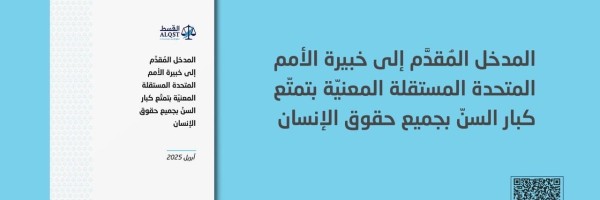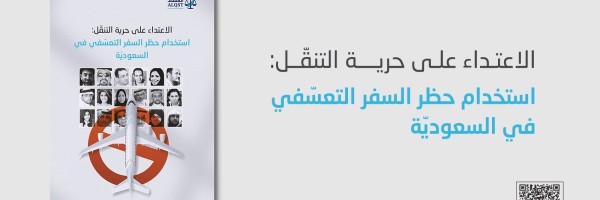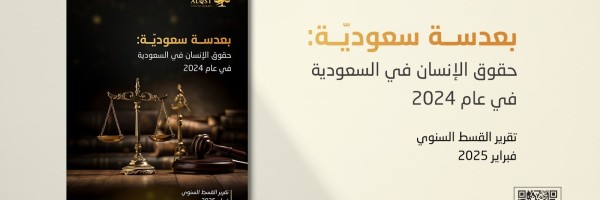"The Saudi Diaspora: A growing community of emigrés and refugees" presents and analyses the findings of a survey entitled conducted by ALQST in early 2024.
Executive summary
According to data from the UNHCR, the United Nations refugee agency, the number of Saudi Arabians fleeing their country and seeking asylum abroad has increased significantly over the past decade, a period that saw a marked increase in authoritarianism and loss of freedom in Saudi Arabia. Yet little is known about this growing community of emigrés and refugees and the challenges they face.
This briefing is based on findings from a confidential online survey entitled “Saudi Citizens and Residents in Exile”, conducted by ALQST in early 2024 among Saudi citizens and former long-term residents of Saudi Arabia now living in the diaspora. A total of 100 individuals responded to the survey out of more than 200 contacted, and 67 of them completed it in part or in full. Although the survey’s sample size was relatively small, the response rate was impressive, especially when one considers the perceived risks involved in taking part.
The findings of the survey were grouped under five questions, as follows:
1. What do we know about the Saudi citizens and residents who responded?
Participants were asked about their age, gender, sexual orientation, marital status, religion, home region in Saudi Arabia, level of education, previous occupation, and legal status in their host country. They proved to be a diverse cohort, reflecting the demographic diversity of Saudi Arabia itself. A high proportion (46%) identified as refugees or asylum-seekers.
2. What were their reasons for leaving their home country?
The survey participants had left Saudi Arabia for a variety of reasons, but the most frequently mentioned were a lack of freedom and feelings of vulnerability because of their activism or that of family members, or because of their sexual orientation. A surprisingly high proportion cited domestic violence, with the failure of the Saudi system to provide protection being the factor that had driven victims to seek safety abroad. Nearly a quarter of respondents had sought help with their problems from official bodies before leaving the kingdom, without receiving any satisfaction.
The overwhelming majority believed they would not be safe returning to Saudi Arabia, even if the authorities gave them assurances of safety.
3. What are their experiences of living abroad?
Participants were asked about the difficulties they had experienced living abroad, both in their personal lives and in relation to their legal situation and career prospects. There were supplementary questions about their mental health and that of their close family members. Money, jobs and housing were the problems most frequently mentioned. Cybersurveillance and harassment from online trolls were also significant issues for many Saudi exiles.
4. What are their thoughts about the current situation in Saudi Arabia?
Survey participants were asked their views on recent changes in Saudi Arabia, such Crown Prince Mohammed bin Salman’s Vision 2030 economic transformation programme, the hosting of major international cultural and sports events, and the state of human rights and civil liberties. Their answers were overwhelmingly negative, but there were mixed views on whether Saudi activists living abroad could have an impact on work to build democracy in Saudi Arabia.
5. What changes would need to take place in Saudi Arabia before diaspora Saudis would consider going back?
More than half of the participants said they had no plans to go back, mostly because of personal safety concerns, fear and mistrust of the current Saudi government, and a perceived lack of legal protection for women and LGBT people. Some respondents expressed a dislike of Saudi society and the country generally, or simply felt settled in their new country and had no reason to go back.
The changes the diaspora Saudis most wanted to see were political freedom/democracy (91%), improvements in employment opportunities and workers’ rights (68%), gender equality (54%) and acceptance of the LGBT community (41%).
The survey’s findings are largely consistent with ALQST’s previous research and intelligence from sources on the ground inside Saudi Arabia, as well as the issues arising in its casework with Saudi asylum-seekers in Europe and North America. They therefore significantly reinforce ALQST’s arguments for radical improvements to the kingdom’s track record on human rights, and indicate a possible basis for collective advocacy by diaspora Saudis more widely.
The report concludes that major reforms would be needed before the majority of Saudi nationals abroad would consider returning to the kingdom, given their fears for their safety and profound mistrust of the authorities. First and foremost would have to be tangible guarantees of free speech, freedom of opinion and expression, and freedom of assembly and association. Legislation guaranteeing civil and political liberties and providing protection for vulnerable minorities and victims of abuse, particularly women, would need to be passed and upheld by an independent judiciary. Releasing prisoners of conscience would be the clearest evidence of the authorities’ good faith.
The survey’s findings strongly reinforce ALQST’s repeated calls for wholesale reform and guarantees of basic rights for all Saudi citizens and residents without distinction, in a legal framework aligned with international human rights standards and implemented and enforced by a judiciary fully independent of the governing authorities.
The report also suggests actions that host countries and the international community could take to support Saudi Arabians in exile and their desire for reforms at home:
- Saudi nationals seeking asylum or at risk of deportation should be protected and claims of threats to their safety should be taken seriously.
- Transnational repression in the form of cybersurveillance and cyberbullying should be addressed.
- Civil associations of Saudi emigrés and their allies deserve support in their advocacy for basic human rights and political and civil liberties in the Saudi kingdom.
- In order to tackle the root causes of Saudis fleeing their country, the work of human rights organisations like ALQST, and advocates at the United Nations and with governments and parliaments everywhere, should be strengthened and widely supported.




